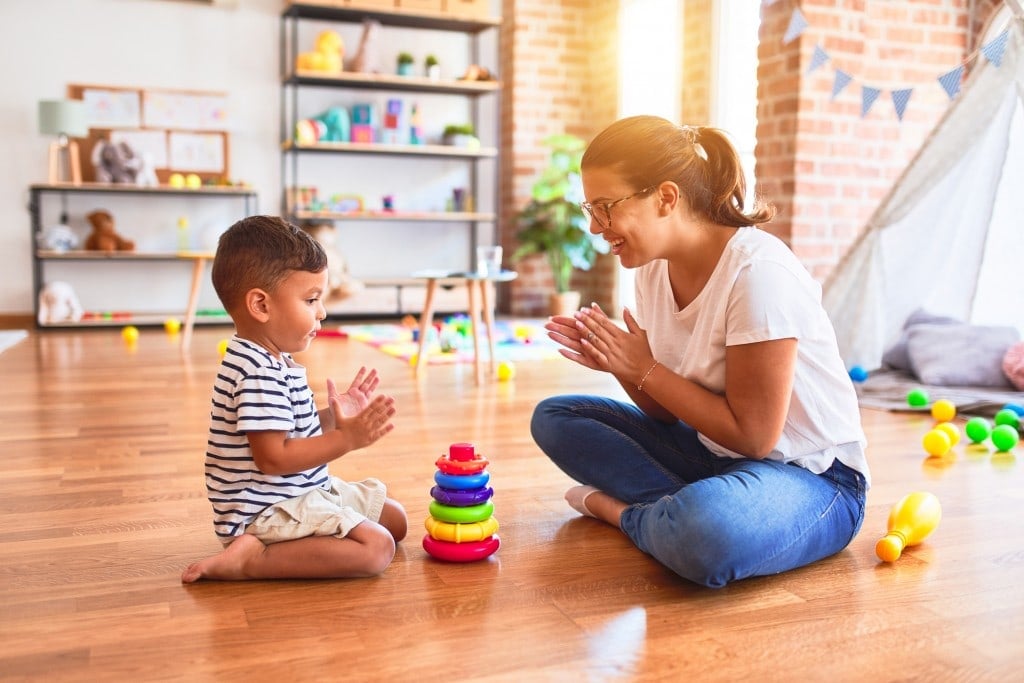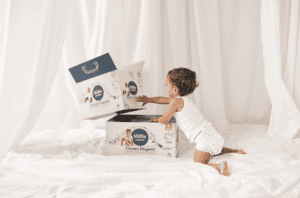Your toddler is nearing 18 months, and you’re probably wondering what you can expect from their development over the next half a year. Your toddler already conquered so many baby milestones by this age, and it’s always interesting to know what lies just ahead. Our toddlers’ development at this stage is so rapid and so full of wonder. And the milestones between 18-24 months old are pretty exciting!
Many parents wonder what’s normal for this age. Is it okay that my toddler is getting into everything and making a giant mess? What about all the tantrums that seem to spring out of nowhere? And how the sudden shyness that seems to come over every time we meet someone new? And the biggest question that seems to come up for a lot of parents — why is my child not playing with other kids? Is that normal?
Don’t worry. We’ve got you covered with all your questions. This article will explain what developmental milestones are awaiting you and your bustling toddler. And also, what might be some red flags that your toddler’s development may not be on track.
And don’t worry if your child isn’t hitting all the 18-24 month milestones. All kids develop at their own pace, and their development is never unilateral. This means your kid may be ahead of the curve in their physical and motor development and a bit behind in social/emotional development and vice versa.
Baby Milestones: 18-24 Months Old
Physical/Motor Development
- Walks without assistance
- Running unassisted
- Walking up the stairs independently (with assistance closer to 18 months, and with minimal or no assistance closer to 24 months)
- Starting to draw with a crayon, marker, or chalk using a Fister Grip
- Pulls toys while walking
- Throws a ball
- Can eat with a spoon or fork (though may not prefer to do so)
- Can drink from an open cup without spilling
- Starts to help undress or dress themselves
- Stacks 3-4 blocks (closer to 24 months)
- Kicks a Ball
- Walks down the stairs with minimal or no assistance
Cognitive Development
- Starting to engage in pretend play with toys
- Recognizes familiar everyday objects
- Points to items of interest
- Can name familiar objects
- Communicates through both gestures and some language
- Can match like objects by color or shape
- Knows how to use everyday objects appropriately (spoon to eat, telephone to talk, hairbrush to brush hair)
- Can name some animals and animal sounds
- Imitates others around them
- Recognizing body parts and can point or name certain body parts
Social/Emotional Development
- Might be starting temper tantrums
- Affectionate towards familiar people
- Likes to explore when parents are nearby
- Stranger danger
- Separation anxiety from caregivers
- Engage in “parallel play” — meaning they may not be interested in playing with another child but will play next to them
- Hands items to people as part of pretend play
- Laughs at funny things
- Imitates others (especially those familiar to them)
- Starting to be ready for potty training (may start telling you when they pottied in the diaper or if they need to use the potty)
- Curious and love to explore new items
- Love looking for parental reactions (wants praise, looks how parents react to negative behaviors)
- Developing a sense of self as a separate individual
When To Talk To Your Doctor
Be sure to consult with your child’s pediatrician if your toddler hasn’t yet achieved these 18-24 month milestones:
- Walk or run
- Prefers to walk on tip-toes
- Point to things to show them to others
- Have at least six words
- Appear to be gaining new words
- Imitate others
- Express emotions (flat affect)
- Seem to notice or care whether their caregiver leaves or returns
- Understand or follow simple directions
- Seem to understand what familiar objects are used for
- Make eye contact
- Engage in any pretend play
- Respond to their name
As you can see, your toddler is learning so much between 18-24 months old! They are working on becoming independent and self-sufficient human beings. So don’t be surprised when your toddler will insist on doing things by themselves (even if they’re not actually capable of doing them). Or throw a giant tear-filled tantrum because they can’t explain to you what it is that they really want to do. In general, you will see a rise in tantrums during this age, as your child’s sense of self-develops, but their expressive language isn’t quite caught up yet to be able to express their desires.
And you will also see how incredibly capable and full of personality your 18-24 months old toddler has become. So don’t forget to shower them with love and let them explore the world (safely). You never know what your budding scientist will discover out there.































